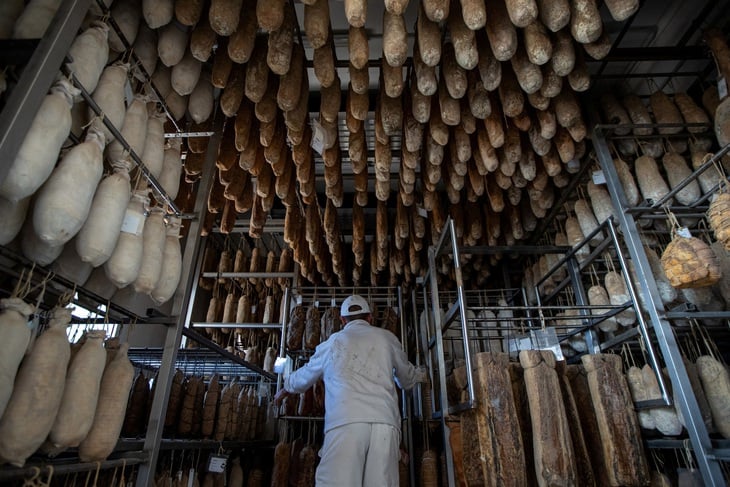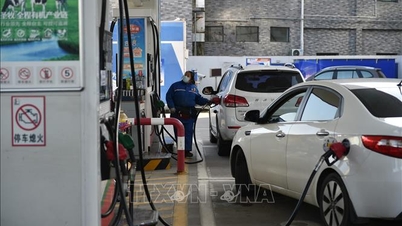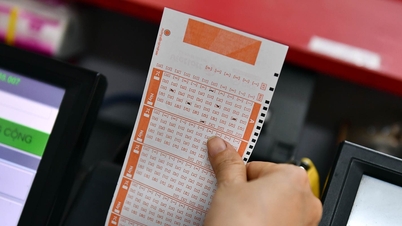
A meat production facility in Italy amid tense trade negotiations between Europe and the US - Photo: REUTERS
On July 24, the European Union (EU) increased pressure on the administration of US President Donald Trump by approving a package of countermeasures in case trade negotiations with Washington collapse.
The retaliatory package will come in two parts, the first of which will see higher tariffs on 21 billion euros worth of US goods in response to Mr Trump’s EU steel and aluminum tariffs. The second, worth 72 billion euros, will expand the list of US products such as Boeing aircraft and Kentucky bourbon.
"Our focus is on finding a negotiated outcome with the United States... We believe that outcome is within reach," Reuters news agency quoted an EU spokesman as saying. The bloc has repeatedly stressed the search for a deal to avoid the 30% tariffs that Mr. Trump has threatened to impose on EU goods exported to the United States from August 1.
The EU and Washington are close to a deal with 15% tariffs and concessions in some key areas, according to several diplomats .
However, the EU is also gradually showing toughness to pressure Mr. Trump to make concessions.
On July 24 local time, EU countries supported a retaliation package of up to 93 billion euros, about 109 billion USD, of US goods.
The first package of countermeasures will take effect on August 7 if the talks with the US fail to reach a conclusion. The second package will take effect in two phases, on September 7 and February 7.
The retaliatory tariffs “are intended to support negotiations, not escalate tensions,” an EU diplomat stressed.
The EU has so far not taken any countermeasures against the US, even though Mr Trump’s tariffs cover 70% of the bloc’s exports. EU members approved a first package of countermeasures in April 2025, but it has been delayed to allow time for negotiations.
There is little information on what the EU will offer the US to reach a deal, according to Reuters. One EU diplomat said the bloc was not considering committing to invest in the US, as Japan has done. Another diplomat said the EU could reduce some tariffs.
Forecasts so far suggest the 15% US tariffs could hit sectors including European cars and pharmaceuticals, and would not be in addition to existing tariffs. Some sectors such as aircraft, timber, pharmaceuticals and industrial products would be exempt.
Source: https://tuoitre.vn/eu-thong-qua-goi-dap-tra-thue-quan-my-20250724225128547.htm





![[Photo] Prime Minister Pham Minh Chinh chairs the second meeting of the Steering Committee on private economic development.](https://vphoto.vietnam.vn/thumb/1200x675/vietnam/resource/IMAGE/2025/11/01/1762006716873_dsc-9145-jpg.webp)









































































































Comment (0)